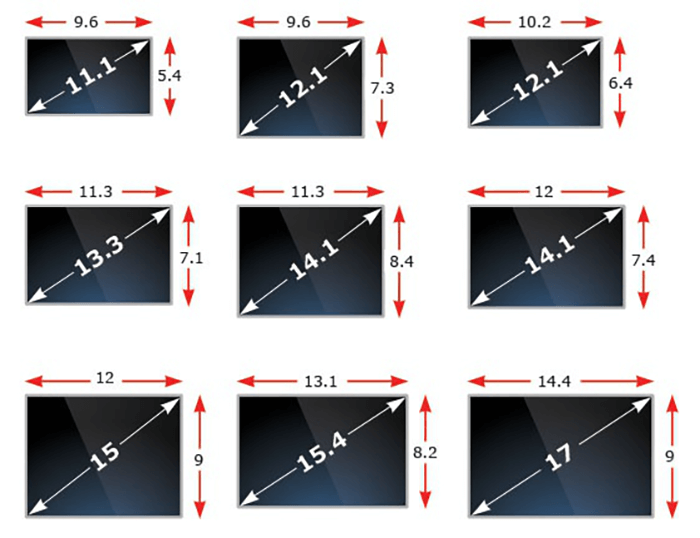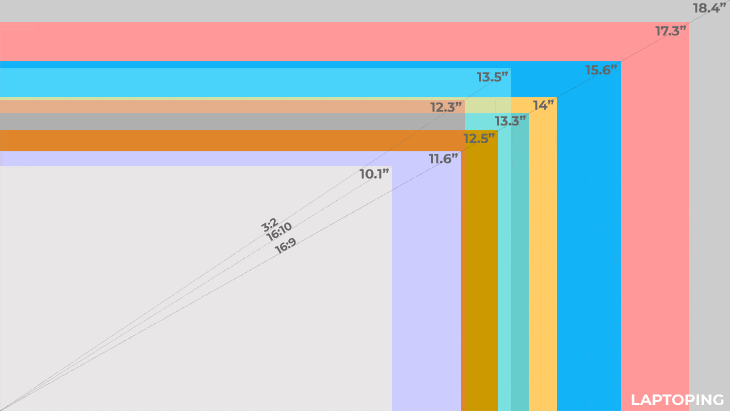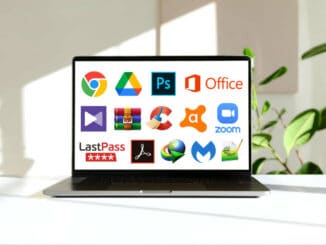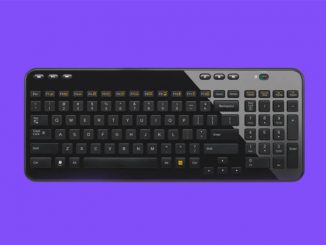There are so many choices one has to make when you are looking out for a laptop. Depending on your usage, you can find various types of laptops available online. One such type is a laptop with smaller or bigger screens. Although screen size doesn’t matter much in some cases, you can consider screen size as a prominent factor for some specific applications and usage.
This article will try to determine the question of basic questions: is a 13-inch laptop too small?
We will first try to compare the larger screen laptops with a 13-inch laptop on a different basis. Then we will move towards the factors one can consider before purchasing a laptop.
Table of Contents
Is 13-Inch Laptop Too Small?
One may have a small viewing angle, while the bigger ones generally offer higher resolution and a larger viewing angle. But the problem that lies with the giant or bigger ones is whether they can fit in the sort of bags you want to carry it around.
Everything majorly depends on who and why a user wants a laptop. For many users, the screen size may be a little small; again, it all depends on the work you have to do. If you are mainly doing your official work like MS Word or MS Excel, then a 13-inch screen is more than enough.
But if you want to have a higher work say if you are a software engineer and need to multitask in more than one window simultaneously, then a 13 inch is not enough.

There exist several factors one needs to consider when buying a laptop before you spend your valuable money. When we talk about the size, it is not just a case of whether you want to buy a smaller or larger laptop. The size of the screen is generally is in integration with other features.
So before choosing between the laptops’ screen sizes, you should consider where and how you will be using your laptop. If you travel a lot or go to school or college or university and need to carry your laptop with you, you will prefer portability. In that case, considering a 13-inch laptop is worth it, as it will become easier for you to take carry it around because of its lightweight.
However, the laptops like DELL XPS 15 packs a 13-inch display into a 14-inch laptop frame. There are various Laptops available in the market that are light and slim but have a small screens. Dell XPS 15 is one such example. But still, some laptops are slim and lightweight but don’t have a small screen.
Before purchasing a laptop, decide the application you are expecting from your laptop. For a video editor or gamer, a larger screen will be favorable. If you are predominantly writing, browsing screen, you will be OK with a 13-inch laptop.
Dedicated AMD or NVIDIA graphics are not a craze for gamers in laptops. Like the video editors and graphics editors, creators also want some of the extra features to ensure additional features.
While there are 13-inch laptops in the market with good graphics capabilities, from the past, this is one area where size does play a role. With a larger laptop, it will have more space to keep the GPU and other components cool. That’s why one will not find a 13-inches Ultrabook GTX 1060 GPU.
For an optimal GPU, a 15-inch laptop is more efficient and optimal for gaming and graphical visualizations.
Another thing that differs with the size is how many ports one can fit on the sides. As laptops become lighter and thinner, the connections on the sides slowly tend to decrease.
The screen size is a somewhat personal thing. If you have the option of trying out a particular screen size before buying, then you should take advantage of it if possible.
Let’s have a look at 13 inches, 15 inch, and 17-inch laptops, mostly because these seem to be the most common sizes. The size of the laptop mainly depends on the size of the screen. Let us first discuss the pros and cons of smaller and larger screens.
The Good and Bad of A 13-Inch Screen
Specifications
Laptops with a smaller screen size have a smaller size footprint overall, which generally makes them lighter and more portable. With the small size of a laptop, there won’t be the size for powerful processors and large battery size. Thus, you might need to compromise with battery size and robust system with a small size screen.
On the other hand, laptops with larger screens take up more space, are usually more solemn, and may have higher spaced hardware. However, this again has a drawback, to increase the battery power, its size will also increase, which will introduce even more weight. It is not possible to find a laptop available at a balanced size, price, and features.
The fact is that screen size is only part of the overall puzzle, but it’s one of the essential elements of a laptop as it defines the overall size and, to some degree, the laptop’s total weight.
Resolution

Resolution is also a crucial factor to be considered, though it is not directly related to the screen’s size. A large resolution will undoubtedly show more on the screen, but it will ultimately make things even smaller on small screens.
A 13-inch laptop having a 2560 x 1600 offers you difficulty seeing what you are doing without getting in really close to the screen. Working on a 4K 15-inch screen may still not be very good.
People may prefer using a 13-inch laptop when traveling because it is lightweight, but one might suffer when it comes to power because some may not have a long-lasting battery. Some may offer a long-lasting battery.
13-Inch Vs. 15-Inch Laptop
Although you won’t find any difference in the specifications of a 13 or a 15-inch laptop, still, if you plan to travel with your laptop and have a more powerful stationary desktop, a 13 inch is a good deal.
If you are working in an office and don’t have the need to carry it along with you, a larger screen will ease your working with a broader display. You can even transport a 15-inch laptop without much hassle if you have a personal mode of transportation.
One will find 15-inch laptops to be a good middle ground; they can be powerful enough to act as complete desktop replacements yet still have some portability. For example, a 15-inch Megabox PRS-G laptop with an Intel quad-core 6700HQ and Nvidia 1070 can efficiently run current games at top settings and only weigh 2.65kg.
If 15-inch laptops can perform this well while still being at an acceptable weight and size, do you need to look at 17-inch models? At the moment, one can have personal choices.
You may not have a real use for a 17 inch or larger laptop and going for a giant one like that, as you had to lug that heavy brick around, and at times it becomes terrible. Indeed, it will be fairly robust at the time and run games well, but if you have a desktop at home for this, then it would be a wrong choice for you.
Transporting a big laptop of 17-inch would be a nightmare due to the size and weight. You should only consider looking at that size or larger if you are ready to carry it around with you and if you need the larger screen size and high-end specs wherever you go. Otherwise, a 15-inch laptop can still be spaced very well and is quite a bit smaller.
Verdict
You can conclude that the laptop and weight’s overall size are the two factors upon which the screen size directly depends. There is always going to be a trade-off between factors such as size, weight, specs, and battery life, for instance.
Ultimately it all depends on what you want. If a bigger screen size is your preference, then be ready to carry a bulkier laptop. A 13-inch laptop can be too small for those looking for a laptop for visualization or photo or video editing, or gaming, while if you want a handy laptop for daily work, screen size doesn’t matter.




Be the first to comment